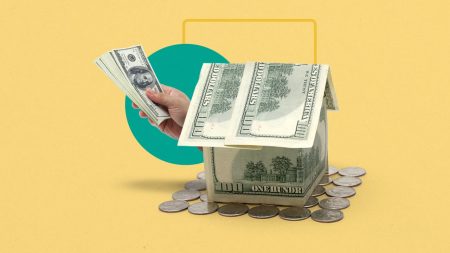Key takeaways
- Not paying your secured credit card bill won’t land you in jail, but it definitely damages your credit score and may forfeit your security deposit.
- If you’re struggling to pay your secured credit card bill on time, it’s best to act quickly. Start by calling your card issuer to explain the situation or request hardship assistance.
- Before you miss a payment on your secured credit card, consider getting a balance transfer credit card or a debt consolidation loan. You can also look into getting a debt management plan or debt settlement.
Getting a secured credit card is often one of the first steps people take to build their credit score since it’s easier to be approved for compared to unsecured options. In general, you can qualify as long as you can afford the security deposit, which helps protect the lender from losing money.
When you’re just starting to learn responsible credit habits, it’s easy to make mistakes like missing a payment. So what happens if you don’t pay your secured credit card bill? The consequences aren’t that different from failing to pay an unsecured credit card bill — you can damage your credit or be charged fees — but there is one significant difference with a secured card: You could forfeit your security deposit.
If you fall behind, act quickly to minimize the damage and take these measures to get back on track.
What happens when you miss a payment
When you start using your credit card, the issuer will report your activity to the three major credit bureaus — TransUnion, Equifax and Experian. That information will be factored into your credit scores, so how you manage the card will affect those numbers. Paying on time helps your scores while paying late hurts them.
But there are other issues associated with missing payments on your secured credit card bill. The longer an account goes delinquent, the worse the situation will become:
- You miss the due date. The credit card issuer will send you a statement with the due date for the minimum requested payment. If you miss that date by even a day (or send less than the minimum payment), the issuer could add a late fee of up to $41 to the amount you owe.
- 30 days late. If you skip an entire payment cycle and miss another due date, another late fee will likely be applied. You may also start getting collections calls once you’re 30 days late. The issuer will notify the credit reporting agencies that the account is past due. When that notation shows up on your credit report, it will be factored into your credit scores. Since payment history is the most important scoring factor, your scores may drop significantly. The issuer may also impose a higher penalty APR.
- 60 days late. When another cycle has passed without payment, another late fee can be assessed and added to the balance. The issuer will notify the credit bureaus that the account is now 60 days past due. The later you are on payments, the worse the credit scoring damage will be. Chances are, you will start to receive notifications from the issuer that you are delinquent and need to send a payment. They may also ask you to contact them for assistance.
- 90 to 180 days late. Keep missing payment cycles, and your credit scores will almost certainly tumble. You will receive more urgent communications from the credit card issuer, and each month you don’t pay, another late fee will be applied. They may claim what is due from your security deposit and close your account so you can’t use it. If there are funds remaining, the issuer will refund you the money. By this point, you may have accrued hundreds of dollars worth of fees and interest. If you still owe after the issuer takes your deposit, the issuer will probably send it to collections. Your credit report will show that the account is charged off and a third-party collection agency now owns the account. The collection agency may then begin calling you for payment.
What to do if you’re having trouble making payments
If you’re struggling to keep up with paying your secured credit card bill, it’s always best to address problems early. Call the credit card issuer as soon as you think you may fall behind. You may be able to enter a hardship program where you pay less than the minimum payments for a few months without negative consequences. Even if the account is already past due, reach out. Explain what happened, and ask if they can help you get back on track. Come prepared to share how much you can afford to pay towards the card and when you might be able to resume regular payments.
Here are four other options you can take before missing payments on your secured credit card.
Balance transfer
Shifting the debt you carry on a high APR secured credit card to an unsecured balance transfer credit card with a 0 percent introductory rate can give you some relief. No interest will be applied to the balance for a specific number of months, as long as you make the minimum payments. That part is key: If you can’t keep up with the payments, the 0 percent APR will be nullified, and the fee you paid to transfer the debt (usually 3 to 5 percent of the balance) will be wasted.
This might not be an option for you if the missed payments on your secured card have already damaged your credit score. Most balance transfer credit cards require a good credit score of at least 670 for approval.
Debt consolidation loans
If your secured card has a high interest rate and the balance you’re carrying is also high, the financing fees will accumulate fast. Consider applying for a debt consolidation loan since they typically have lower interest rates than credit cards. Then repay the card debt with the loan.
After that, all you need to do is make your payments on time. Loan payments are fixed, so they can be easier to manage than credit cards’ fluctuating payments. Debt consolidation loans can increase your credit scores because the balance will not count toward your credit utilization ratio, the second-largest credit scoring factor. However, the now-empty credit card will have an open credit line which can further help increase your credit scores.
Keep in mind: If you take advantage of a balance transfer or debt consolidation loan, it’s important to not get into further debt as you are paying the balance off. If you charge the now-empty secured credit card up again, your overall debt will increase, and your troubles will intensify as you struggle to make both payments.
Debt management plan
Nonprofit credit counseling agencies are dedicated to helping struggling consumers manage their money and financial obligations. They offer debt management plans that let you make one payment to the agency, which they disburse to all of your creditors. These agencies often negotiate to get reduced interest rates so you won’t pay as much in finance fees.
It’s not a loan, so you don’t have to qualify. However, you may notice that your credit score drops as a result of paying less than what you originally owed. Your consistent monthly payments will be noted on your credit report, however, and over time your credit scores may rise. Contact the National Foundation for Credit Counseling or the Financial Counseling Association of America for a referral.
Debt settlement
If your account is many months behind or has already landed in a collection agency, you may be able to pay less than the amount due. Debt settlements are possible for secured credit cards when the credit card issuer has already claimed the security deposit and there is still an amount outstanding.
Settlements are usually arranged via a third party debt settlement company. The portion you don’t pay is formally forgiven, which means you will no longer be liable for paying it. Be aware, however, that settling a debt can negatively affect your credit rating since the creditor will report that it was settled for less than the full amount.
The bottom line
It’s never a good idea to fail to pay your credit card bill, whether it’s a secured or unsecured card. In any case, your credit score could suffer and you could face additional fees and interest charges. If you fail to pay your secured card bill, however, the card issuer may also decide to take your security deposit to cover the debt.
There are options if you’re struggling to pay your credit card bill. The key is to seek assistance and form a payoff plan sooner rather than later.
Frequently Asked Questions about late payments
-
FICO, the most popular credit scoring company, ranks payment history as the most important scoring factor, accounting for 35 percent of your score. Therefore, any late payment that makes it to your credit report will have a negative impact on your score. If you realize you’re late soon after your due date, you may be able to avoid credit consequences by making that payment and asking your issuer not to report the incident.
If you had a long and positive history with using credit products and your credit score was high, a late payment on your secured credit card bill can have a more extreme effect than if your scores were already low. Additional factors are the amount you owe, the number of months you are behind, how frequently you pay late and how recently the late payment was noted.
-
No matter where you go in the world, a debt is a debt until it is paid or formally forgiven. While you are away, the credit issuer can take a couple of different actions. It may sue you for the unpaid balance. If you are not in the country and don’t answer the summons to appear in court, the credit issuer can continue with the legal action, and you may lose the case with a default judgment.
All the late payments that preceded this action will appear on your credit report for a total of seven years. Interest, fees and court costs will apply, too. The credit card issuer will likely send the account to a collection agency. Collections agencies can also sue debtors for unpaid balances.
-
There is no debtors’ prison in the U.S. for credit card debt. In fact, they were outlawed by the federal government in 1833.
Read the full article here
















